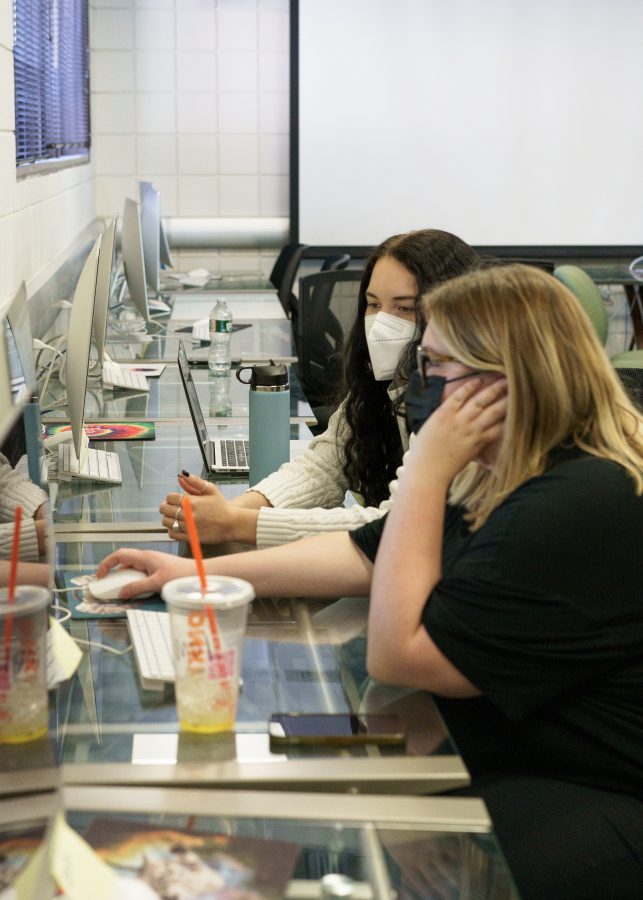On Thursday, April 21, Chancellor Marcelo Suárez-Orozco sent an email to the campus community with the subject line: “Masks Are Strongly Recommended.” The email comes less than a month after UMass Boston switched to a mask optional policy on March 28.
Chancellor Suárez-Orozco cited the BA.2 subvariant as one reason COVID-19 cases are on the rise. NBC10 reports that, as of April 14, 90.3 percent of COVID-19 cases were linked to the so-called “stealth variant.” Three weeks before that, the BA.2 subvariant was only linked to about 55 percent of the region’s cases.
With the BA.2 variant on the climb, Suffolk County has fallen into the “medium” risk category according to the CDC’s Community Level data, as the chancellor wrote in his email.
The CDC’s website states that individuals who are high risk or immunocompromised and live in a “medium” risk level are encouraged to “talk to [their] healthcare provider about additional precautions, such as wearing masks or respirators indoors in public.” The website also suggests: “if you live with or have social contact with someone at high risk for severe illness, consider testing yourself for infection before you get together and wearing a mask when indoors with them.”
With these factors in mind, the chancellor stressed the protection masks provide.
“While our very high vaccination rates provide a strong layer of protection for our community, wearing a mask—especially higher quality masks such as surgical or KN95-style—continues to offer an additional layer of protection,” reads the email.
The chancellor also stressed that masks will still be required in campus shuttles despite the MBTA’s shift to a mask-optional policy, that masks are still required for those who are unvaccinated or unboosted, and that existing protocols regarding masking after quarantine or isolation remain in place.
With only a few weeks left in the semester, the chancellor offered a warning about future masking policies.
“Please note that it may be necessary to re-institute a mask mandate for the entire campus in the near future if the indicators continue to worsen and as per CDC and local health authority recommendations,” reads the email.
Williams College, located in Williamstown, Mass., recently lifted their indoor mask mandate just to reinstate it days later, after cases rose.
“I think students are really feeling like people they know are dropping like flies,” said junior Kitt Urdang to ABC News. “There’s definitely been a lot more uncertainty than there’s been on campus since COVID-19 hit.”
Universities and colleges in Washington D.C., Pennsylvania, New York, Texas and Connecticut have all taken measures to prevent the spread of COVID-19 amongst the rising cases. Howard University has even switched to remote learning.
In his email, the chancellor reminded the campus community that masks and antigen tests are available on campus in four locations: the University Health Services testing clinic, the Campus Center Information Desk, the Human Resources office in Quinn, and the Office of Environmental Health & Safety in Quinn. Additionally, students and staff may schedule free PCR testing in the Campus Center using the My Health Beacon portal.
“We extend a heartfelt thank you to all our students, faculty and staff for your continued vigilance in keeping our community safe,” reads the email. “You can find information about policies, announcements, FAQs and our dashboard on the UMass Boston COVID-19/Return to Campus website.”

